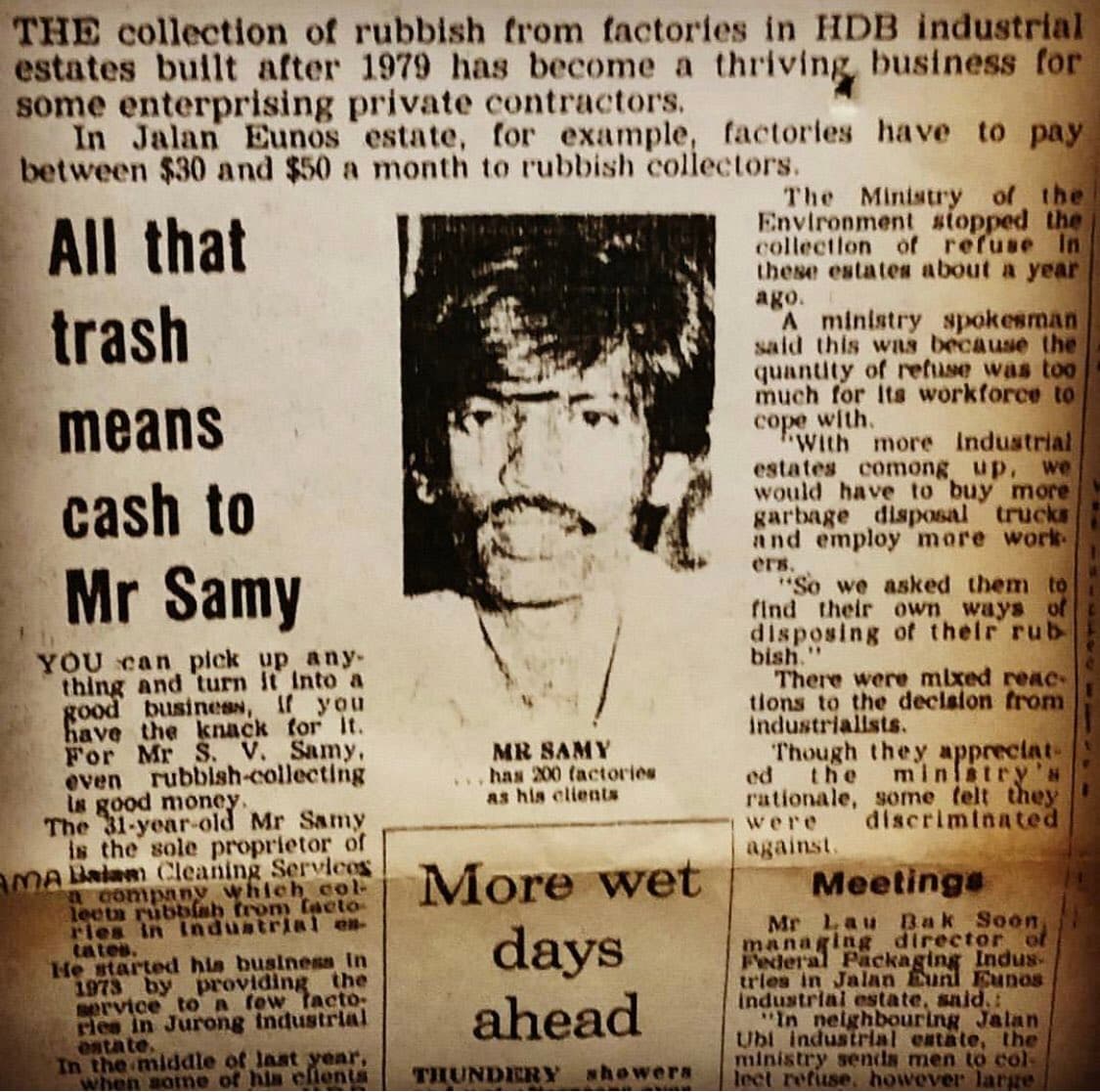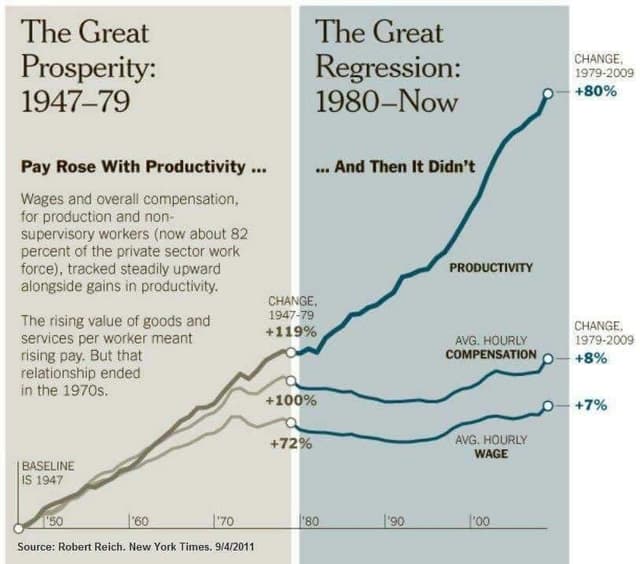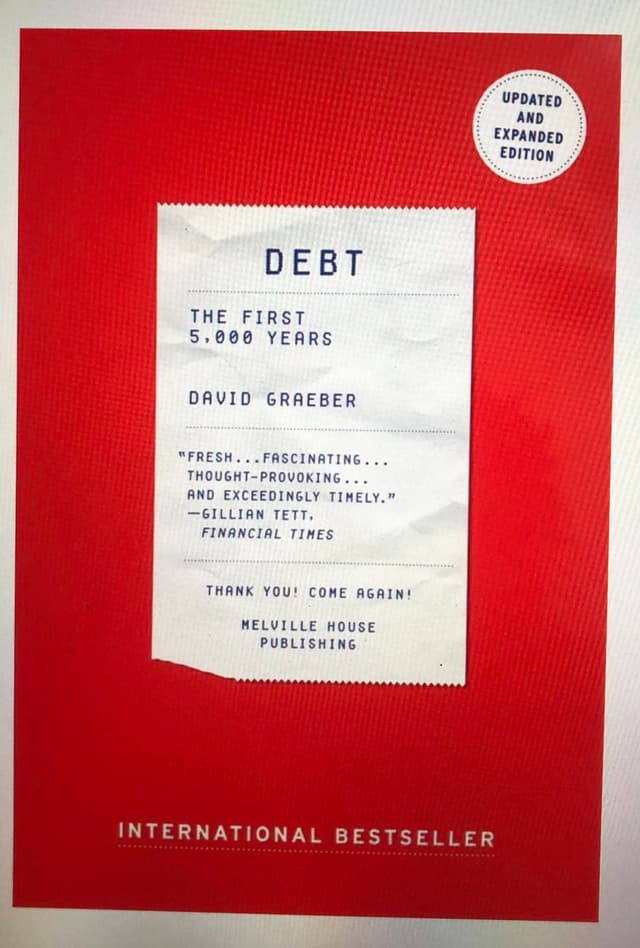🧵 View Thread
🧵 Thread (44 tweets)

Most people tend to be satisfied with something like, “well you get a job, and jobs pay money” - but I’m still anxious. Where do jobs get money? Mostly (but not only!) customers. Where do customers get money? Mostly (but not only!) jobs

A Paul Graham essay about wealth relieved a substantial amount of anxiety. Without referring to it, my recollection is: money is a proxy (imperfect) for what people want. Get good at making or doing what people want, and you’ll be OK That’s good enough to function, but still...

Pause. Let’s switch up to an interesting fact. Some of the biggest sources of money in the world are “investment funds”. Saudi Arabia’s investment fund, which I assume is made primarily of oil money, invests billions in proxies that invest in tech, construction...

These hallowed portals of money are so massive and opaque, I’m not sure it’s possible for outsiders like me to develop an accurate model of them or how they work over the course of an entire lifetime. They’re almost like gods, or the high priests of the church of the $$$ god

Pause. Switch back to jobs. A job is a role in an organization. My favorite fun example of an organization is a bank heist - the getaway driver gets paid even though he isn’t “directly” involved (depends on how you see it). When the heist is simple, every job clearly “matters”

The scary thing to me as a teenager m was the prospect of working a bullshit job in a bullshit organization, cranking widgets that nobody actually cares about, nobody actually wants outside of the bizzaro context of the organization itself

It’s interesting to reflect on this now - why was I so averse to this? Seriously, I was constantly nauseous in junior college because I felt like everyone around me was hallucinating and I was given a placebo or something. Everyone marching in lockstep to a beat I couldn’t hear

Some time, space, reading & reflection has made it clear: school isn’t about education, school is part of an economic-industrial complex mass-producing interchangeable widgets for the capitalist meat grinder of humanity. Annoying wokebros whining about this doesn’t make it untrue

Parents and teachers and peers all unwittingly conspire to create this mass hallucination where people collectively mutilate, cauterize and brand their minds in service of The Economy - and not The Economy itself, but their imperfect, vague and detached conceptualization of it

The prospect of it always seemed hideously bleak to me. The prize for doing well in school, it seemed, was that you get to win one of the higher paying jobs in one of the more prestigious organisations, meaning you get to crank high-prestige widgets instead of low-status widgets

It’s interesting to reflect now how kids of different socioeconomic status would’ve interpreted the received wisdom differently. 🤔 kids from wealthy families surely know certain things about the nature of wealth that kids from poorer families don’t, and perhaps never will

A thing that must’ve shaped my worldview, that I never really thought about: my dad ran his own business for the entirety of my childhood. It was an industrial waste disposal business - blue-collar work. Mr. Veerasamy was literally the founder-CEO of a garbage company

I had to navigate this weird space: - we were better off than a lot of families in SG; we lived on landed property rather than a HDB flat - my parents were not-very-smart about how they managed their money. They were always *stressed* about money while we lived in a big house

- I had many friends who were significantly “poorer” but clearly happier and better adjusted, and even more... classy? My dad drove us around in a rickety pickup truck with garbage in the back 😂 - I went to school with kids who were *incredibly* wealthy, top 1%

So I have always had this really feral attitude towards money. And towards everything, really 😂 I was volunteering with prisoners, hanging out with migrant garbagemen, playing in a band, organising gigs, working at a hotel, speaking at rallies and talking with Ministers

It was interesting, I guess, to know that my uneducated dad was making more money hauling trash than several of my friends’ parents who had degrees and so on. I suppose it meant I never quite bought into certain assumptions people have about status

That said, I think my parents had all sorts of personal demons & bugbears about status & wealth that I wasn’t entirely conscious of. My mum still asks me when I’m going to university 😂 when I see it in them now, I find it a little sad. It’s child-like, like worrying about prom

When I was 17, I was trying to save up money to record my band’s music - and so I worked part-time banquet staff at Shangri-La hotel. It was one of the most interesting experiences of my life (lol at potato quality 2007 camera phones) https://t.co/ZCtBcnBtf9


My dad always told me, “I want you to study hard so you don’t have to struggle and suffer like me”. But working hard manual labor at SL was *incredibly* satisfying to me. It was the opposite of school. Everything I did *mattered*. I felt real kinship with everyone I worked with

I get that I was working only for a month or so, and it’s a sort of “blue collar tourism” - life is different for people who have no choice. I know. I spoke with them, worked with them, ate with them, smoked with them. It was the realest experience of my life until then

So like... maybe what my dad was trying to say with “I don’t want you to struggle like me” is, “I don’t want you to feel low-status like me”, in which case I have already succeeded beyond his wildest dreams. But I don’t think he sees it 😂 yet, anyway. Asian parents need proof

I think what I’m circling around to is... my experiences with lots of different people have taught me that there’s something unjust about the way money is distributed. (Just observing my own feelings; I’m not advocating for redistribution or anything. Just trying to understand)

Before I get down to reading the Graeber book I think it’s interesting to just reflect and riff on the idea. Money is debt. Money is a promise. Money is a piece of paper representing the promises people have made each other We pay each other with other people’s promises

Ok reading time https://t.co/YfAyF0K9Xr

It all makes sense now https://t.co/Cek0IjosJg

This is part of what I’m talking about. Why do the money gods smile on some and not others? I want to understand. It’s an elaborate game of status and intrigue https://t.co/JRXmUxs0F8

The OSS community has yet to come to grips with “Companies with $50 million in the bank send an incredible volume of support requests to people who are worried about making their $600 rent, and the community and culture in OSS makes this feel normal.” https://t.co/ZSxXkTiRQz

I would love to read a book or thread about “the physics of money”, just full of anecdotes like this https://t.co/ocJDVh56S9

Hahaha just found an old photo of a photocopy of an old news article about my dad in the 1980s https://t.co/9gaQAbZgNm


To read: https://t.co/4MgeNnNJg2

“What happened in 1971?” https://t.co/08L411AYRj

Inflation is the source of most problems society faces today. Real costs decline, prices rise, but wages don't. This illusory phenomenon has disrupted all exchange, entrepreneurship, workers, savers, and borrowers; it's corrupted our lives and culture. 1/ https://t.co/aMWPkx5bkw



a summary of my understanding after all my questioning: https://t.co/4SJCce5gMa

everybody owes each other stuff, we call this society then people invented coin to represent this debt and trade it around, we call this money the trade of debt ebbs and flows in massive and complex global patterns, we call this the economy https://t.co/SoCh2dJt6I

35. just leaving this here so I know where to find it next time https://t.co/9JXne4gjSj

@visakanv Took my dad a couple years of @CompliceGoals being successful and me explaining it to him in terms he could understand: dad: have you thought of like... hiring people? me: I have like a dozen employees! they're all software! dad: huh, and I guess they never go on strike... 🤔

@visakanv You're in Singapore, right? My understanding from my wife's family is that it's particularly pronounced there. You might enjoy living a bit in other places if you haven't yet. Australia for example very much respects "tradies" in policy and culture, and life is valued over work.

@visakanv yo if you want to understand this at a technical level I recommend this short presentation https://t.co/UT3WB4TQFn
